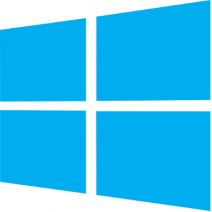SolutionOne Blog
Microsoft Sets Itself Up Nicely With Windows Store Loophole
 When you’re managing your business’s technology, you want to limit access to time-wasting applications and keep your employees from accessing the Windows Store. It just makes sense. Yet, for the businesses that want to restrict access to the Windows Store on Windows 10 devices, well, that’s too bad; Windows 10 Pro version 1511 just made your life a whole lot more difficult, unless you’re willing to pay extra for Windows 10 Enterprise edition.
When you’re managing your business’s technology, you want to limit access to time-wasting applications and keep your employees from accessing the Windows Store. It just makes sense. Yet, for the businesses that want to restrict access to the Windows Store on Windows 10 devices, well, that’s too bad; Windows 10 Pro version 1511 just made your life a whole lot more difficult, unless you’re willing to pay extra for Windows 10 Enterprise edition.
From a business perspective, it makes sense that Microsoft would do this. After all, the new operating system version makes it so that there are no digital means to keep employees from purchasing apps and other media on their workstations. Thus, Microsoft can make more money. The problem, though, is that company workstations are designed for work, not play. You don’t want your workstations cluttered with non-essential applications that don’t do anything other than take up space and cause employee distraction.
Thus, the only real way to keep employees from using the Windows Store on the latest versions of Windows 10 is to spend more money, which some organizations will reel over. This development has forced administrators to consider adopting Windows 10 Enterprise if they’re adamant about removing access to the Windows Store on company systems.
In a press release, Microsoft stated, "Windows 10 Pro offers a subset of those capabilities and is recommended for small and mid-size businesses looking for some management controls, but not the full suite necessary for IT pros at larger enterprises. The ability to block access to the Windows Store is typically for organizations who want more control over corporate-owned devices. This fits into the value of Windows 10 Enterprise."
So, returning to our previous point, of course this change makes sense for Microsoft. Either they make money from your upgrade to Windows 10 Enterprise, or they make money from the apps, games, and other media downloaded by your end-users. So, what can a productivity-minded business owner do to remediate this issue?
The easiest way to fix this problem is to implement some type of productivity-tracking solution, or perhap look into a web content filtering system that keeps employees from browsing dangerous or wasteful websites. The idea is that you want your employees to be held accountable for the time that they spend in the office, whether they’re on the clock and working diligently, or wasting time to whittle away the workday.
Or, alternatively, perhaps Microsoft’s Windows 10 Enterprise solution really does suit your organization’s needs. This demands that you have a complete understanding of what your business’s specific needs are, and whether Microsoft’s Windows 10 Enterprise edition will be a boon or a hinderance.
For assistance with your technology, and finding solutions that work for you, reach out to us at (214) 299-8555.
Comments